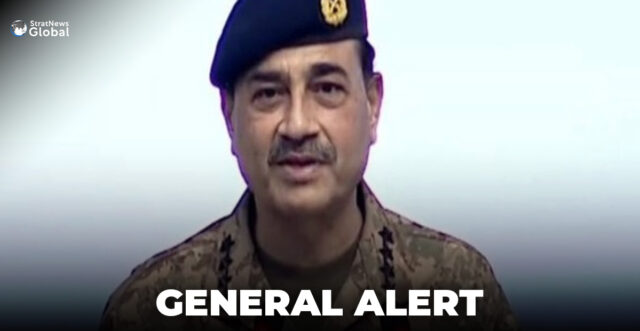Another terror attack. Another massacre of Hindus in Kashmir. Another round of scripted condemnation. We’ve seen this movie before—except this time, the plot is laced with a fresh twist of audacity from across the border.
The timing isn’t a mystery. Just days ago, Pakistan’s Army Chief General Asim Munir dusted off the rusted two-nation theory, declaring Hindus and Muslims to be inherently separate civilisations. It was less a speech, more a dog whistle. And now, innocent blood spills in Kashmir—again.
This wasn’t spontaneous. It was staged. A deliberate hit, aimed at exploiting India’s domestic anxiety. With Indian Muslims navigating real and difficult conversations—on the Waqf Act, civil liberties, and growing polarisation—Pakistan’s generals saw opportunity. A divided India is the wet dream of Rawalpindi’s war rooms.
The pattern is painfully familiar: use religious fault lines to ignite chaos, use proxies to do the dirty work, and then disown the carnage with a smirk.
But General Munir and his terror-industrial complex continue to misread the script. India may falter. It may bleed. But it does not forget. And it most certainly does not forgive.
This is not a country that seeks vengeance in haste. We don’t do theatre. We do accounting. And the ledger is open.
Retribution, when it comes, won’t arrive with hashtags or hysterics. It will be cold, clinical, and delivered with brutal precision. Because revenge—real revenge—isn’t about rage. It’s about memory. Strategy. And timing.
Let’s be clear: this isn’t about Kashmir alone. This is about a rotting state across the border where military uniforms double as mafia suits. Where terror is not a glitch in the system—it is the system. And Munir is just the latest in a long line of generals who believe a fragile India is easier to handle than a strong one.
To them, a divided India is useful. Which is precisely why we must not hand them that victory.
Yes, Indian Muslims have grievances. Yes, there is discomfort, even anger. But to think that a foreign army chief cares about these concerns is laughable. Munir is not a friend. He is a pyromaniac hoping to light matches under old scars. That should enrage every Indian—regardless of faith.
We can and should debate domestic policy. Loudly. Democratically. But let’s not get played by a man whose idea of statesmanship involves exporting suicide bombers and sermonising about civilisational divides.
To the cowards who carried out the attack: your guns are cheap, and your cause is bankrupt. To the men who sent you: this isn’t over. India will respond—not with bluster, but with clarity.
Because while you deal in immediate impact, we deal in inevitable outcomes. And when justice arrives, it won’t knock.
This isn’t just another attack. It’s a warning flare—fired by Pakistan, aimed at India’s fault lines. The only correct response now is to deny them their dream: an India at war with itself.
So yes, revenge is coming. But not in the form of riots or knee-jerk rage. That’s for amateurs. Ours will come on our terms, at a time of our choosing. And it will be remembered.
After all, as the old saying goes— revenge is a dish best served cold. And the kitchen is just getting started.
In a career spanning three decades and counting, Ramananda (Ram to his friends) has been the foreign editor of The Telegraph, Outlook Magazine and the New Indian Express. He helped set up rediff.com’s editorial operations in San Jose and New York, helmed sify.com, and was the founder editor of India.com.
His work has featured in national and international publications like the Al Jazeera Centre for Studies, Global Times and Ashahi Shimbun. But his one constant over all these years, he says, has been the attempt to understand rising India’s place in the world.
He can rustle up a mean salad, his oil-less pepper chicken is to die for, and all it takes is some beer and rhythm and blues to rock his soul.
Talk to him about foreign and strategic affairs, media, South Asia, China, and of course India.





